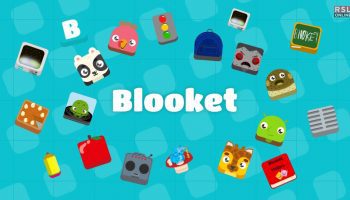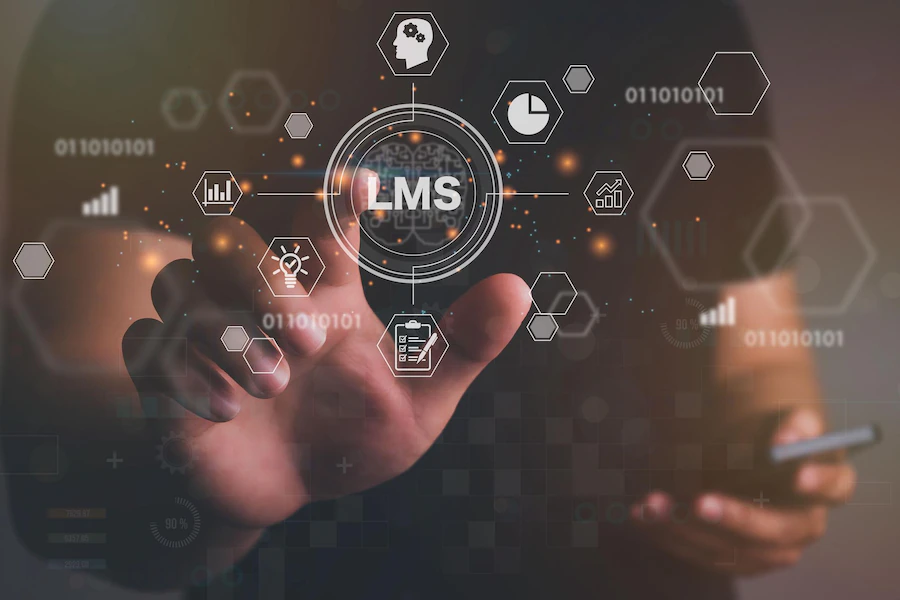Learning Management Systems definitely revolutionized the education industry, providing effective e-learning platforms for creating, managing, and delivering online courses. LMS solutions offer a wide range of significant advantages for organizations, educators, administrators, and students.
One of the most powerful aspects that often goes underappreciated and underutilized is the customization features offered by modern LMS platforms. Customizable Learning Management Systems allow educators to create truly personalized and tailored learning environments. In this post, we will talk about the main customization features of today’s LMS and how they can help educators to achieve better results.
Branding And UI Customization

Branding plays a critical role in creating a sense of belonging in students, and tailoring the user interface to align with the organization’s overall visual style and design can significantly benefit the whole learning experience. Customizable LMS enables the incorporation of logos, color schemes, and graphics to create a cohesive visual experience for students.
Also, educators and administrators can leverage customization features to tailor platforms to suit their instructional design and teaching approaches. User interface and visual layout customization are essential for maintaining a unified and cohesive learning environment.
Course Structure And Navigation
One of the key aspects of the learning experience is the structure and navigation of online courses. Today, LMS customization allows educators to design and organize their course content in a way that enhances students’ engagement and aligns with their instructional goals.
Capabilities for creating units, modules, or topics allow teachers to present information in a logical and coherent manner, guiding students through the learning materials in a systematic way. Sequencing and chunking features also enable educators to present content more linearly and logically. For a personalized learning approach, teachers can create alternative pathways or even additional modules based on individual students’ requirements. Incorporating interactive elements in online courses promotes active learning and enhances student engagement.
Basically, LMS, with a high level of customization, allows educators to implement any teaching technique or methodology known today.
Assessment And Grading
Modern LMS offers a wide range of customization options that empower educators to create diverse and effective assessment methods and tailor grading systems. Within platforms, teachers can easily create various assessment types, like quizzes, tests, simulations, or group projects, and customize them to reflect the specific skills or knowledge they aim to assess.
Diverse question types and formats allow educators to go beyond traditional approaches and enhance the learning experience. Overall, assessment customization will enable teachers to monitor and track students’ progress more efficiently, quickly identifying areas for improvement and offering targeted interventions.
Communication And Collaboration Tools
Effective communication and collaboration are among the most crucial components of a successful e-learning experience. Learning Management Systems today offer a great range of features to engage these aspects of education. Discussion forums that can be tailored to specific goals foster active student participation and peer-to-peer knowledge sharing.
Chat and messaging features are vital for instant communication among students or between learners and instructors. Setting availability hours, creating chat groups for specific purposes, or enabling private messaging significantly increase the effectiveness of these tools.
Virtual classrooms and video conferencing tools can be customized by adding screen sharing, polling, or breakout rooms, adapting these virtual spaces to individual learners’ needs. Finally, group workspaces can be tailored to fully reflect the nature of group project activity, group size, or specific roles assigned to members.
Source: stocksnap.io
Accessibility And Inclusivity
One of the most impactful ways LMS platforms transformed education is by providing equal opportunities for all learners. With robust customization features, organizations and institutions can address the diverse needs of students even more effectively and create more inclusive learning environments.
Customizable display and layout options, alternative text descriptions for multimedia content, keyboard navigation, shortcut customization, and closed captioning benefit students with various impairments and disabilities. Compiling with various guidelines and accessibility policies by making course content more optimized for learners with different needs ensures that the LMS platform promotes equal access and brings online courses to an even wider audience.
Gamification Elements
Gamification is one of the main trends in modern education that can significantly enhance students’ motivation, engagement, and learning outcomes. Custom LMS development enables organizations to easily incorporate such elements into their courses.
Tailored badges and achievements that align with course objectives, learning milestones, or specific skills can better motivate and reward learners for their achievements, fostering a sense of accomplishment. Leaderboards and competitions with specific metrics or time frames create a more dynamic and interactive learning environment.
Customizable goal-setting and visual representation of students’ achievements motivate students to work harder towards set objectives. Tailored points and rewards systems allow educators to create fully gamified experiences that encourage learners to actively participate and strive for excellence.
Source: pixabay.com
Analytics And Reporting
Modern LMS platforms offer educators and students some incredibly powerful analytics and reporting features, significantly enhancing performance, engagement, and progress. Such customization options as tailored metrics, dashboards, and individual reports generated according to specific data points or filters provide teachers with a more comprehensive understanding of learners’ progress and enable targeted support when needed.
Capabilities for identifying struggling students and patterns of underperformance help educators to change their content plan and provide individual students with more personalized learning paths. It leads to better knowledge retention and a deeper understanding of course concepts.
Also, analytics and reporting tools are excellent for institutional assessment. Customizable features for aggregating data across various courses and programs enable administrators to assess the platform’s performance. These reports help institutions and organizations to meet accreditation requirements and make data-driven decisions to enhance the quality of education.
Conclusion
Learning Management Systems constantly bring education forward and empower teachers to create more personalized and engaging learning environments. Customization features allow educators and administrators to achieve even more impressive results.
Embracing those features not only helps to enhance motivation and knowledge retention but also to develop essential 21st-century skills. By harnessing the full power of modern LMS customization capabilities, institutions and organizations can easily create more tailored and effective educational experiences, fostering a culture of active learning, communication, and continuous improvement.
Read Also:




























